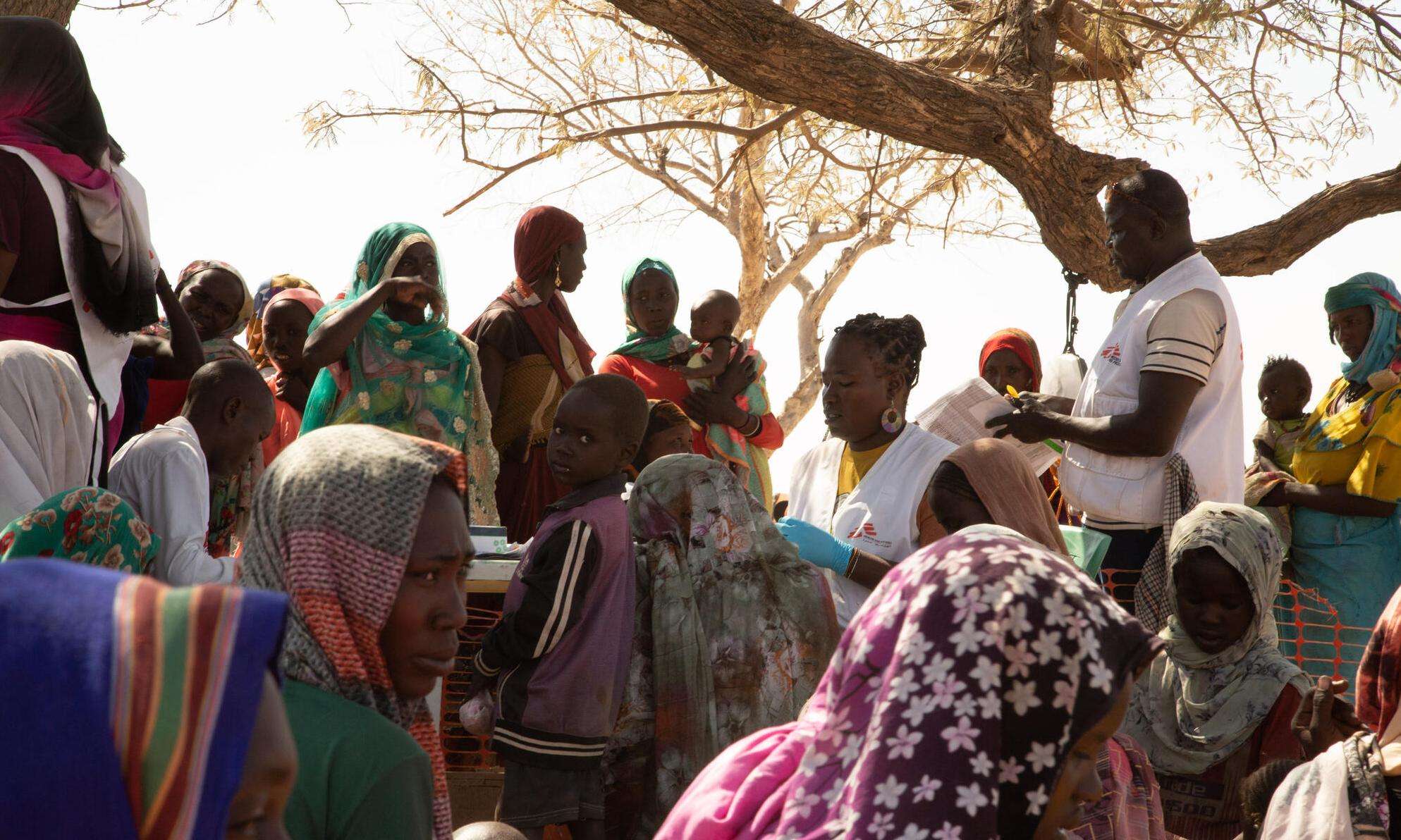Almost a year later, nearly 92,000 people, the majority Chadian returnees, continue to survive in very precarious conditions, putting additional strain on already-overstretched resources that were barely meeting the needs of the host community.
About 50,000 people have settled in Daguessa and Goz-Aschiye alone, and their unmet needs continue to grow due to an overall limited humanitarian response and lack of funding, despite the efforts of Doctors Without Borders/Médecins Sans Frontières (MSF) and other organizations.
Fleeing Sudan for Chad
Alimè is a Sudanese refugee who fled overnight with her daughter and found refuge in Daguessa. “I saw a lot of things in Sudan, such as looting,” she said, “Some houses were even burned by fire. I saw people killed and wounded in front of my eyes. Even along the way, I saw people being robbed of everything they had.” Like most people in Daguessa, the little humanitarian assistance Alimè receives is far from enough.
Many Chadian returnees (people who had previously fled Chad for refuge in Sudan) no longer have any tangible ties to their country of origin. Like other refugees, they have arrived in Chad in search of protection and assistance.
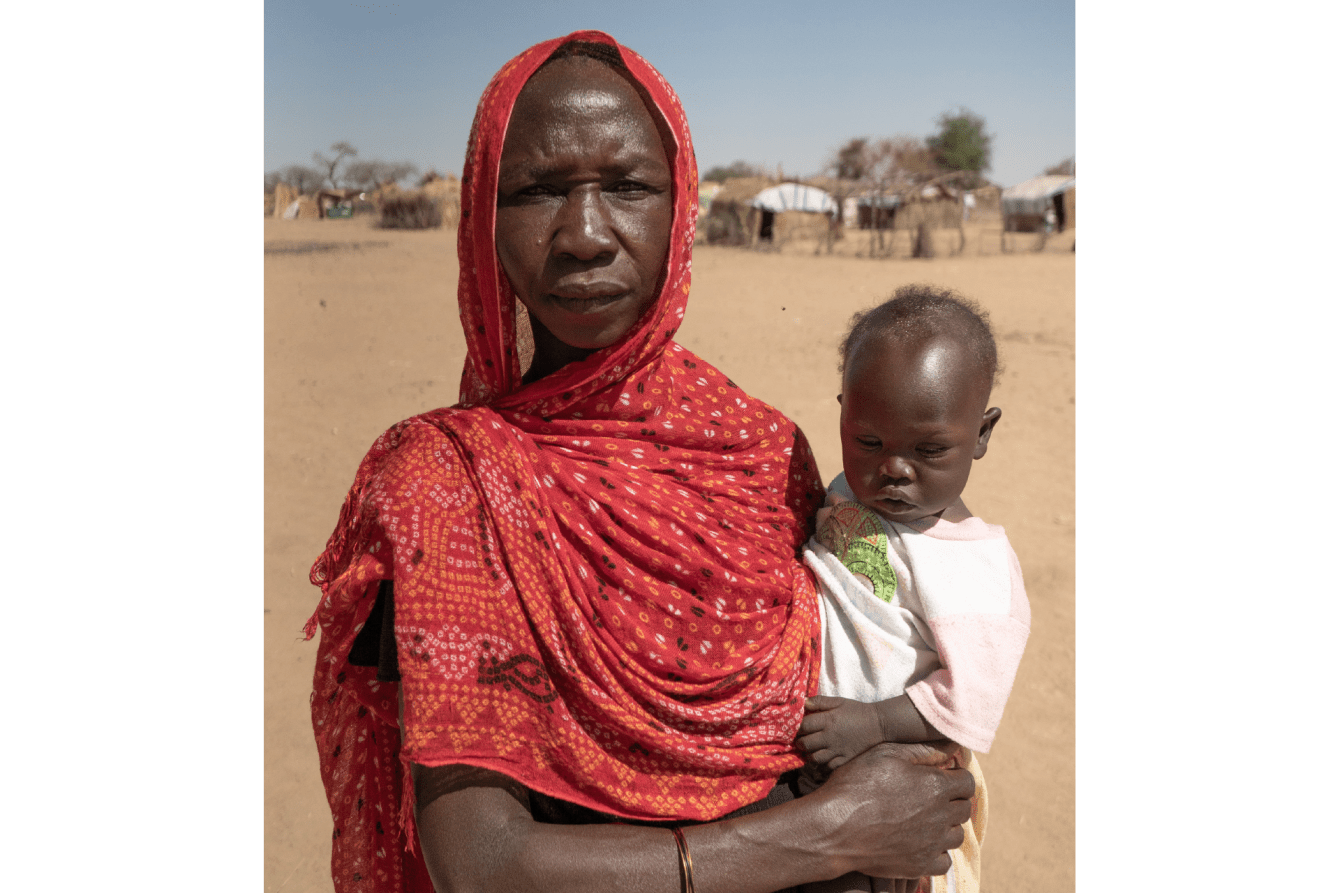
“I’m alone here,” said Awa, who fled Sudan for Chad, while her husband stayed behind. “In the camp, we all come from different places, there is no relationship between us that would allow me to get help from anyone. I don’t have a card to receive food rations. We collect straw in the bush, and we sell it to the community to have something to eat.”
Awa brought her son to the MSF clinic when he fell ill. MSF teams diagnosed the child with severe malaria and diarrhea, and referred him to the Daguessa Health Center, where another MSF team stabilizes patients in critical condition.
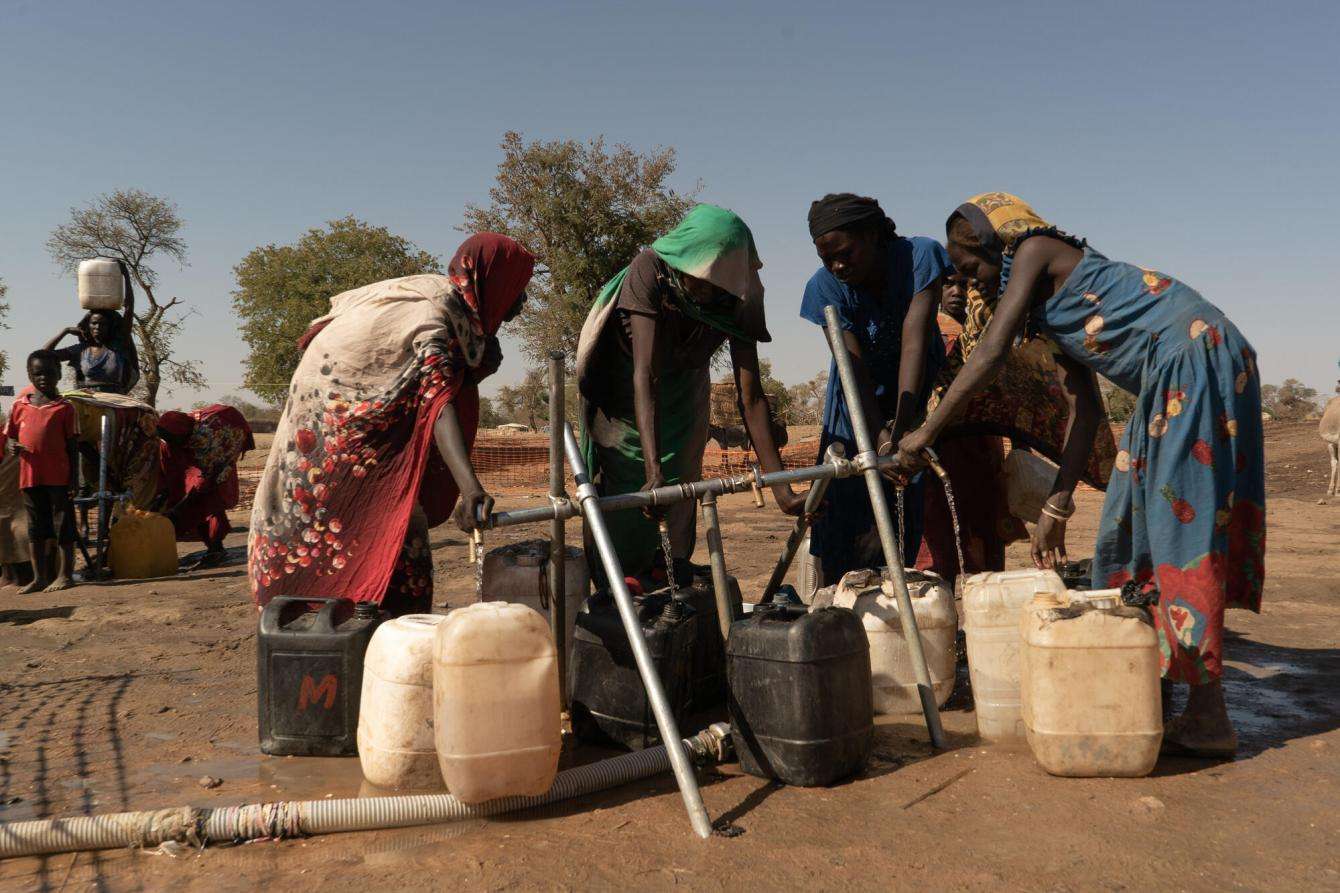
Scarce resources barely cover needs
In the village of Goz-Aschiye, residents share their limited resources with the new arrivals, but food remains scarce and distributions don’t cover the needs of everybody living there. “One woman told me that her children hadn’t eaten anything for four days. How do you talk to someone who is dying of hunger about health and prevention?" said Goumsou Mahamat Abadida, a health promoter with MSF’s emergency project in the Sila region.
In 2023, 1,563 patients, all under five years old, were admitted to an MSF nutrition program in Sila for acute malnutrition, including 500 severe cases and 1,063 moderate cases. Acute malnutrition weakens the immune system and increases people’s vulnerability to infectious diseases, highlighting the importance of health care to prevent severe illness.
"[MSF] is trying to ensure a minimum of health services in the Goz-Aschiye camp, but it’s not enough to alleviate the huge humanitarian needs that we see in the camp," said Goumsou.
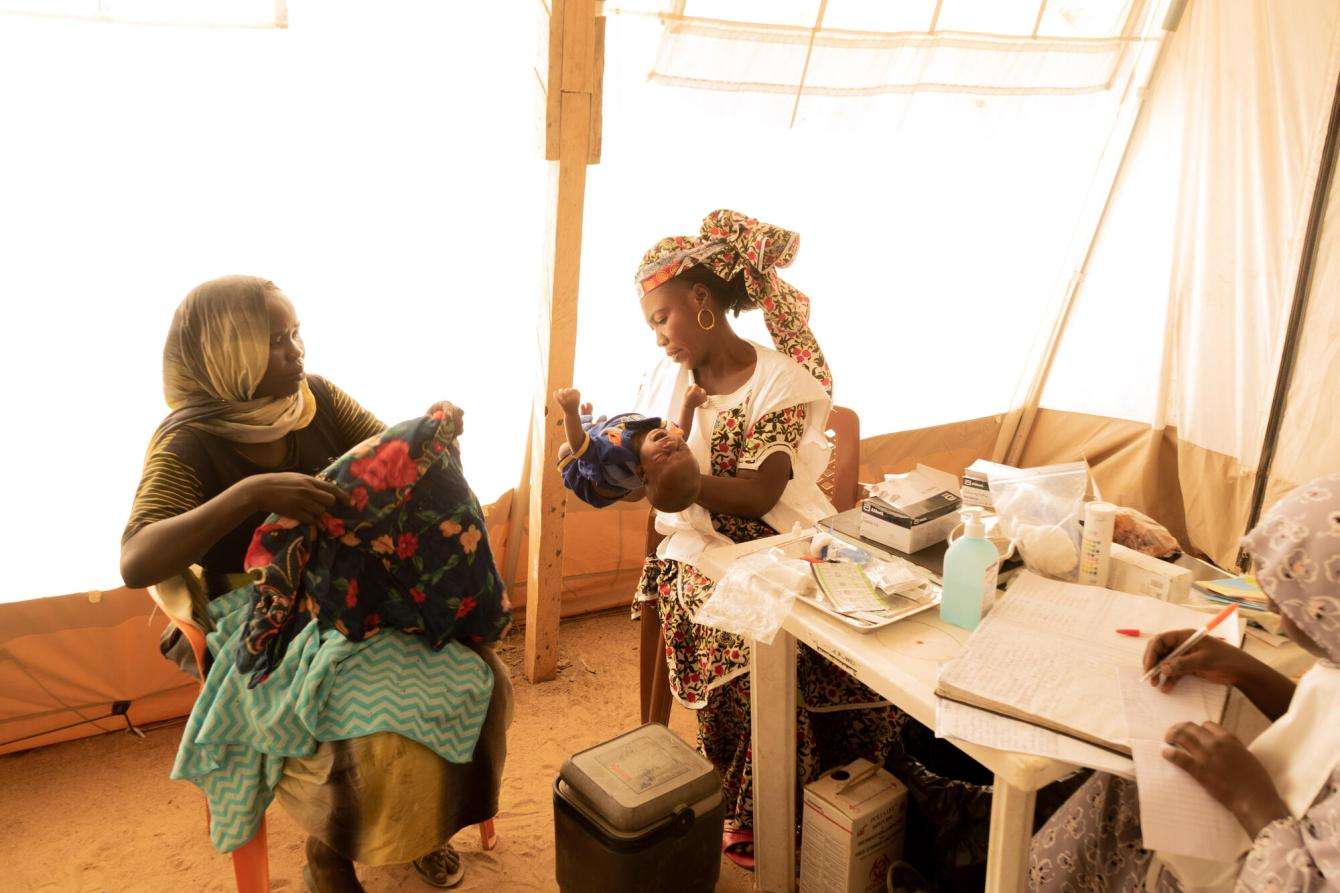
MSF’s medical and humanitarian response
Since May 2023, MSF teams have been running a mobile clinic three days a week at Daguessa Health Center, along with two stabilization tents with a capacity of 10 beds. Patients with medical conditions requiring secondary care are referred to specialized medical centers. MSF also runs mobile clinics in Andressa and Goz-Aschiye, where our teams conduct an average of 200 to 300 consultations per week, diagnosing respiratory infections, diarrhea, malaria, and many cases of severe acute malnutrition in children under five years of age.
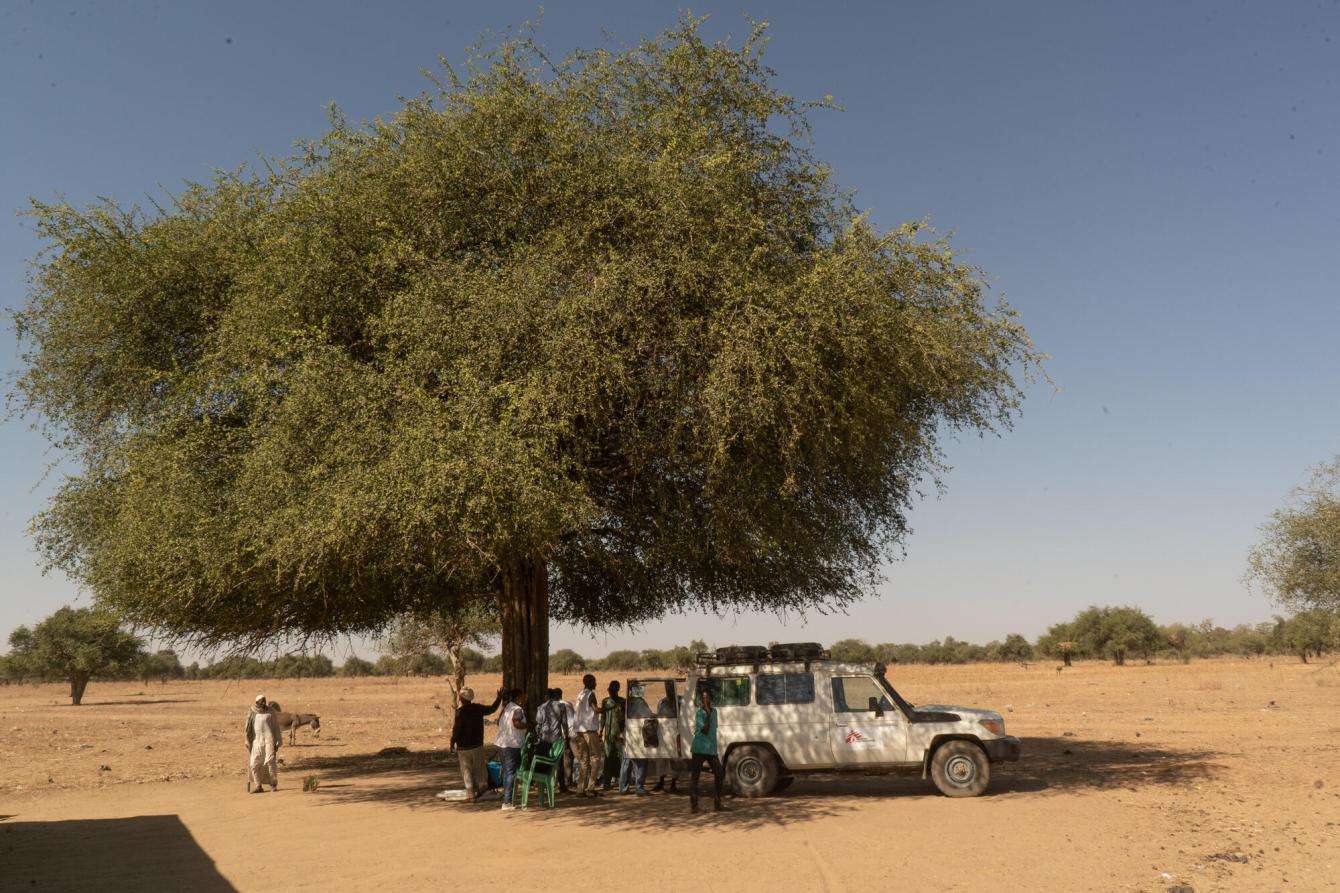
To improve hygiene conditions and access to drinking water, our teams have also built several boreholes and started trucking in water. However, access to drinking water still does not reach the minimum standard of 15 to 20 liters per day (about 4-5 gallons)—most people in Daguessa have access to only 6 liters (about 1.5 gallons). This increases the risk of infectious diseases, especially when combined with the other poor conditions refugees are living in.
“The humanitarian response in this remote area is still inadequate due to a lack of funds and organizations on the ground, which is slowing down the delivery of aid to displaced people,” explained Khatab Muhy, MSF head of mission in Chad. “Even before the Sudanese crisis, eastern Chad was already facing chronic food insecurity.”
